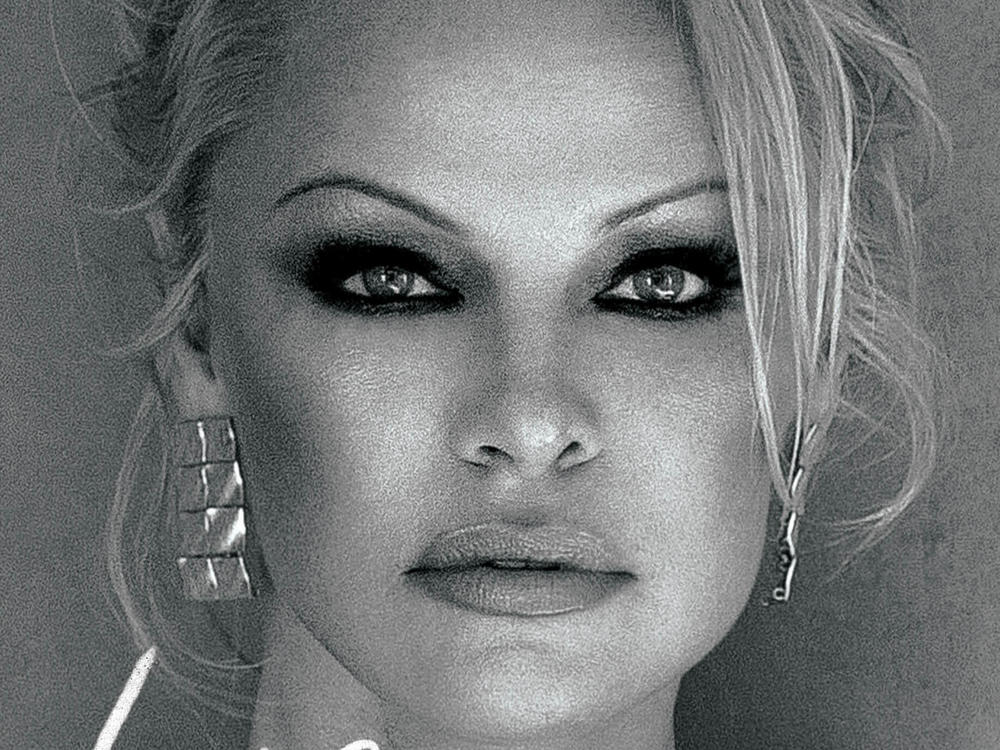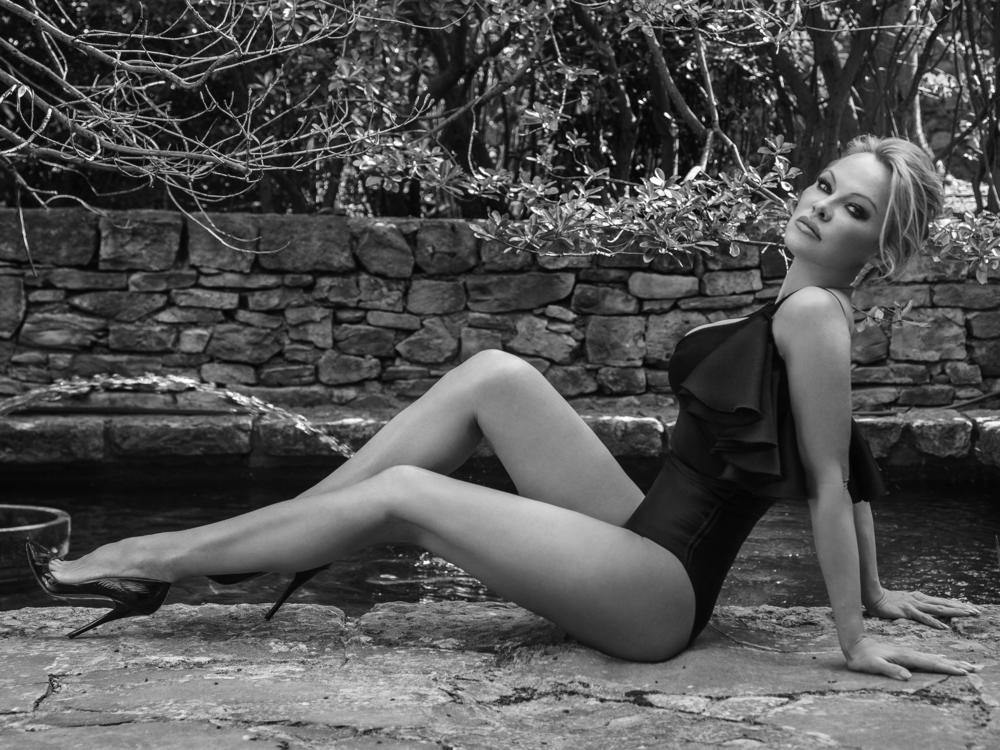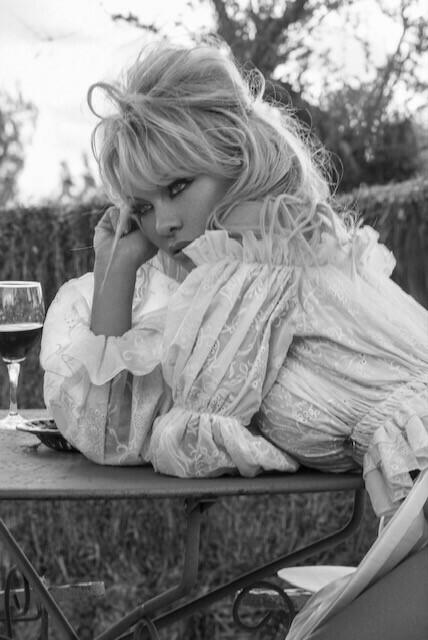Section Branding
Header Content
Pamela Anderson on her new memoir — and why being underestimated is a secret weapon
Primary Content
Pamela Anderson – the Playboy Playmate and TV star who became one of the most famous sex symbols of all time – has written a book about herself. And it was her two sons who gave her the idea to do it.
"I think they were just sick of always fighting for their mom," she told NPR. "And they don't even know the gritty details of everything, of course, but they felt like I had overcome some things which is what made me very strong, or gave me this sense of humor."
Anderson has worked through a lot, including sexual abuse that started at a young age.
And she made it very clear from the beginning that she would have full control when writing her memoir.
"I don't want a ghostwriter, I don't want a collaborator. I just need a great editor. And that's what happened. I wrote every word," she said.
In an interview with NPR's Ailsa Chang, Anderson talks about the process of writing the book, and how she embraced her sexuality as a way to take back power in her life.
This interview has been edited for length and clarity.
Interview highlights
On being molested by a female babysitter when she was young
From then on, I just felt kind of like a prisoner of my childhood. I was really confused and I knew it had something to do with my body. I just was painfully shy, paralyzing. It was such an awful feeling. And so when I did get to L.A., when I did push myself to kind of make these kind of brave choices, it was life or death for me. It really felt like I was doing something to overcome and take my power back. And I did it with a vengeance.
On using and embracing her sexuality as a form of empowerment
Well, I'm a romantic, and I was always a big reader and loved fairy tales. So it was this heightened reality of what romance could be, because it couldn't just be two normal people, you know, sitting on a couch reading together. For me, it had to be my knight in shining armor. Like, Tommy (Lee) and I just had this very wild, kind of romantic time together.
It's how I imagined a real loving relationship should be, because my role models were my parents who were, you know, it was alcoholism and abuse – so I just felt like I don't want that. Because, you know, the abuse in my life, I think what people don't realize is it's accumulated, it's compounding. So it just became harder and harder, and more and more about my imagination and playing a character because I really want to disconnect from myself.
On using her sex appeal to draw attention to things that are important to her
I started to think that anything that got me in the door was a good thing. So a lot of times I would meet with world leaders because they wanted to meet me, you know, have a kiss on the cheek or an autograph. And I wanted laws to be changed. And we both got what we wanted. So they were always very impressed that I knew about what I was fighting for. They didn't expect me to come in alone and to have these thoughts. And so I was able to be very successful.
And there have been strange things. When I would write a letter to somebody to meet them, they would call and say, you know, the prime minister of Australia, for instance, would say, can I bring my buddies along?
I was getting kind of used to that kind of behavior, but publicly people were starting to kind of catch on how awful that was. And, again, I didn't crumble. I mean, you just have to keep going. Disrespect is a weapon of the weak. And I was able to change laws for animals. And that was really important to me to kind of have some meaning along with this kind of silly, superficial career. I felt like I wasn't able to really dig my teeth into anything of substance when it came to my career. So I thought, well, this is how I can create some meaning.
On how she thinks being underestimated is like a secret weapon
I always kind of laugh when people go, "Oh, my gosh, she wrote a poem!" or "She said this!" And if it was anybody else, maybe it would be kind of sidelined, but because it was me, it was so shocking.
On the decision to leave some experiences of her life out of the book
Well, I mean, my book started out just as a poem. It was like a 60 page poem. And I had to learn how to shape it and put it into a book. But I also felt like there were some things that just didn't need to be in there, because I really wanted to balance it with the whole life story. It's not just — the things that happened to me aren't me, you know? I wanted to make sure that my feelings about these situations, it was more about that, not about just like the men in my life or people that had come and gone.
But I'll tell you, the hardest part of the book for me to write was about the abuse as a child, to actually name things like the games she used to make me play on her. And I felt like, I really don't want to say this. And so I probably should say it because I think there's so many people out there. You know, predators know how to pick vulnerable people and they do things to you that are so embarrassing and shameful that you would never tell anybody. And I think that's something that we need to get past. And I think that hopefully will help young people or anybody tell somebody. It's hard to. But I wanted to say that – and, you know, I took it out, erased it, and I put it back in, and I took it out, put it back in. It needs to be in there. And I think it'll speak to somebody.
On whether naming her trauma changed the way she thought about her past
Well, obviously my survival mechanism was my imagination and also learning how to compartmentalize. And I'm dealing with that a lot right now with my mom. You know, she read the book and we've been talking and it kind of comes out in jibs and jabs and, you know, these feisty kind of comments. My mom's very sarcastic and funny, but it's very cutting and cold. And I can tell she's just processing. So I'm just kind of listening to her. But I think in the end, it's helpful. And I want to stop this because in my family, this is a lineage. This is generations of the same story. And I don't want that for my kids or anybody in my family.
Someone has to be brave enough to stop it. We don't have to tiptoe around alcoholics. We don't have to be in abusive relationships. We can leave. And I said to my mom – which was very difficult – I guess the difference between her and I is that I left and she stayed. That I chose my kids and she chose my dad. You know, like we've been going at it a little bit like this, but I think it's good, let's get this out.
I think that's why at any sign of abuse for me, at any sign of violence, I left. And, you know, people kind of like to make fun that I've been married multiple times – and I make fun of myself, too, because those are my regrets. I wish I didn't, but I just wanted to recreate a family for my boys. But I just, you know, it wasn't fishing in the right pond maybe. I'm still searching.
Copyright 2023 NPR. To see more, visit https://www.npr.org.



